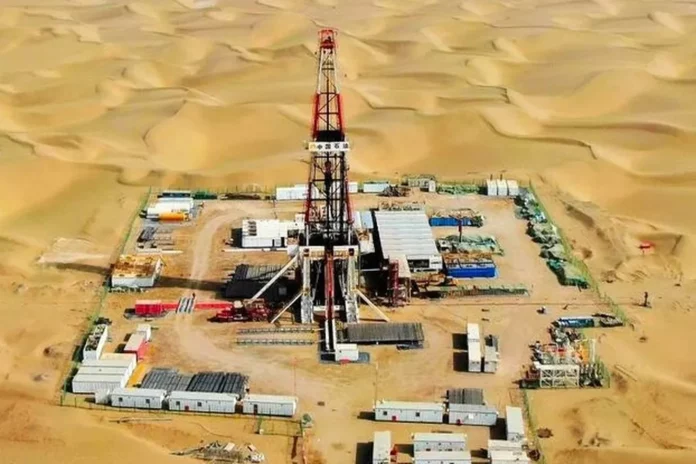There are many ways scientists can discover what lies beneath the Earth’s surface. However, perhaps nothing compares to the information that can be obtained from a very deep borehole.
In China, work is underway to dig an 11,100-meter borehole in the Taklamakan Desert in the northwest of the country—equivalent to more than 33 Eiffel Towers stacked on top of each other. However, this borehole won’t be the deepest in the world: the excavation won’t surpass the 12,262-meter Kola Superdeep Borehole in Russia (which is now abandoned) or the 12,290-meter BD-04A oil well at the Al-Shaheen oil field in Qatar.
Chinese scientists hope that the borehole will significantly enhance the understanding of Earth’s geology. Additionally, the search for oil and gas has begun as the drilling progresses. The Chinese authorities have not disclosed all the details about the borehole or the types of experiments and analyses that will be conducted. However, it is noted that the drilling process itself will help verify what science knows about the Earth’s crust.
Continental crust generally extends to a depth of about 30 kilometers, so the borehole will not reach the Earth’s mantle. The excavation is expected to take about a year to complete, with around 2,000 tons of equipment and tools, including drill bits and drill pipes, brought in for the project.
